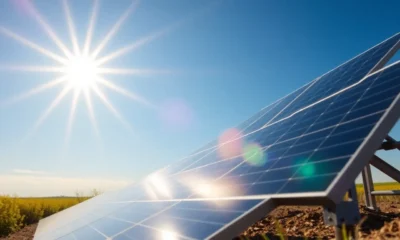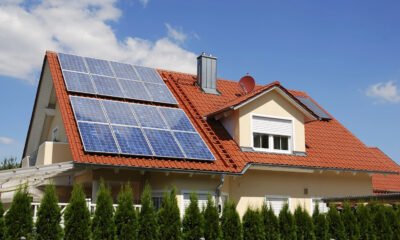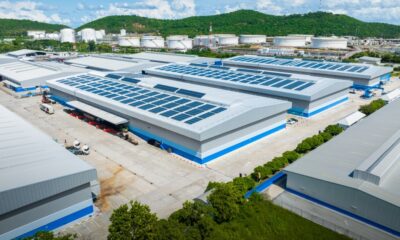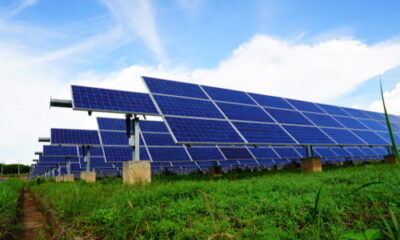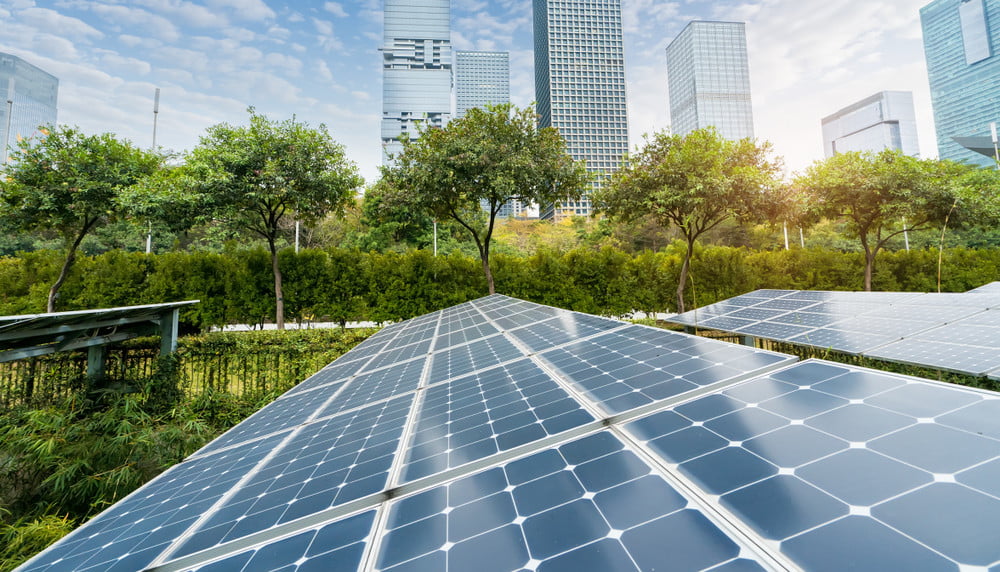
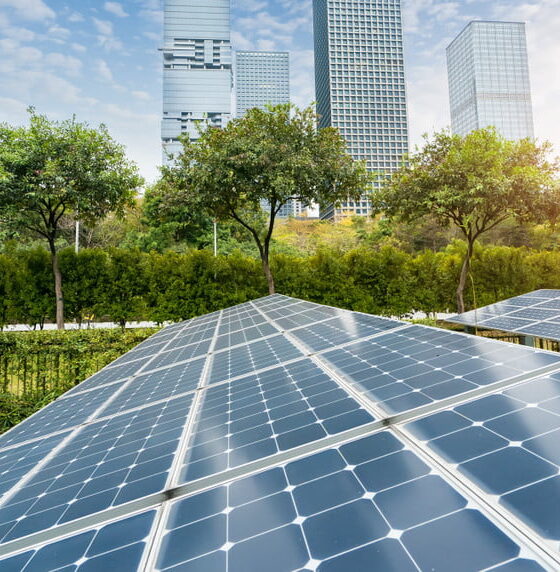
Energy
4 Reasons Why Solar Is Still a Top Choice in Alternative Energy
From wind to battery to water, alternative energy technology continues to change how we power our homes, office buildings, and even our cars. But solar power remains a front runner in the alternate energy industry.
Solar energy, which is derived from the sun, is harnessed through photovoltaic (PV) cells. These cells directly turn sunlight into electricity, allowing solar energy to be used to power homes and other buildings. And this technology is nothing new. Scientists discovered that sunlight alone could be converted into electric power via solar cells in 1876. The first commercial solar cells became available in 1956, an U.S. and Russia’s space programs used solar to power satellites in the late ’50s and early ’60s. Solar cells became much more affordable starting in the 1970s, and the technology has continued to infuse itself into energy infrastructure around the world since then. Over the last 10 years, use of solar energy has grown by 68%.
Are you considering having solar panels installed? You will be pleasantly surprised by the benefits after you choose the best solar panels for your home or business.
While change can be hard, switching to solar energy offers numerous benefits. Here are four compelling reasons to embrace the green technology.
1. Solar Is Eco-Friendly
Going green has been a trend for the last few years, and it doesn’t seem to be going away any time soon. Unlike conventional power sources, solar power doesn’t emit chemicals that harm the environment.
Using fossil fuels to power our homes and other buildings causes all sorts of harmful emissions including:
- Carbon monoxide
- Carbon dioxide
- Nitrogen oxides
- Sulfur dioxide
- Heavy metals such as Mercury
Solar energy is renewable and, most importantly, clean. With this form of energy, there are no worries of greenhouse gases, increased risk of acid rain, or increases to ground-level ozone. In fact, scientists are working on new solar cells that “use a photosynthetic material in algae to capture solar energy, directly converting it into electricity,” Earl Reser writes. “Once these ‘living solar panels’ are ready for use, they will emerge as an environmentally-friendly and low-cost approach to harness solar power and generate green energy.”
2. Durability
While solar panels can cost thousands of dollars, the cost is well worth proven durability. Since solar panels aren’t easily damaged and have no moving parts, the risk of something going wrong is very slim. In turn, you can have peace of mind that you’ll rarely experience an interruption in service.
Today’s solar panels are extensively tested to ensure that they can withstand extreme weather conditions including high winds as well as heavy rain, snowfall, and even hail. In the event that your solar panels were to break, most are covered with a long-term warranty.
3. Extremely Reliable
Solar energy is also extremely reliable. One of the biggest myths about solar power is that energy is generated from the sun. The fact is that energy is derived from daylight. This means that even on rainy or cloudy days, the panels are still able to produce energy. Solar panels are meticulously placed to ensure that they can accumulate energy in the morning and afternoon hours, creating electricity that will last for days to come.
Since your home will remain connected to the grid, excess energy that your home creates is pushed back onto the grid. This causes you to have electricity costs credited to your account. That’s right, you can actually make money by having solar panels installed on your roof!
4. High Return on Investment
Many of the home improvements that you’ll make to your home will rarely add what you’ve paid to the value of your home. With solar panels, you will save money on your monthly energy bill which helps to balance out the cost of the panels.
As an added benefit, solar panels typically add value to your home, which means you can make money when selling your home. In fact, a study found that potential homeowners are willing to pay $15,000 more for a home that has solar panels.
In a competitive market, having solar panels could be the factor that sets your home apart from others in the area. This means less time on the market and a quicker sale!
Paying for Solar Panels
Despite the many benefits of using solar panels, many homeowners decide against having them installed because of the cost. Before tax credits, solar panels cost a little over $18,000. For most, this cost is simply way too expensive. The good news is that you don’t have to pay for solar panels in cash. In fact, there are various financing options to pay for them including credit cards, home equity loans, and even Hearth financing.
Before counting out using solar energy at your home, consider your financing options. If you have equity in your home, you can use this to finance the cost of solar panel installation. For those homeowners with solid credit, consider applying for an unsecured loan, such as a personal loan, to pay for the costs of solar panels.
Other financing options include home improvement loans, low-interest credit cards, and even local and state grants and loans. Be sure to discuss financing options with local lenders to ensure you’re getting the best deal possible.
While fossil fuels continue to be used, solar energy is the way of the future. Don’t let the cost of solar panels keep you from staying ahead of the curve. Keep these benefits in mind as well as financing options to ensure you do your part in saving money and most importantly, saving the Earth.


 Environment12 months ago
Environment12 months agoAre Polymer Banknotes: an Eco-Friendly Trend or a Groundswell?

 Features11 months ago
Features11 months agoEco-Friendly Cryptocurrencies: Sustainable Investment Choices

 Features12 months ago
Features12 months agoEco-Friendly Crypto Traders Must Find the Right Exchange

 Energy11 months ago
Energy11 months agoThe Growing Role of Solar Panels in Ireland’s Energy Future
